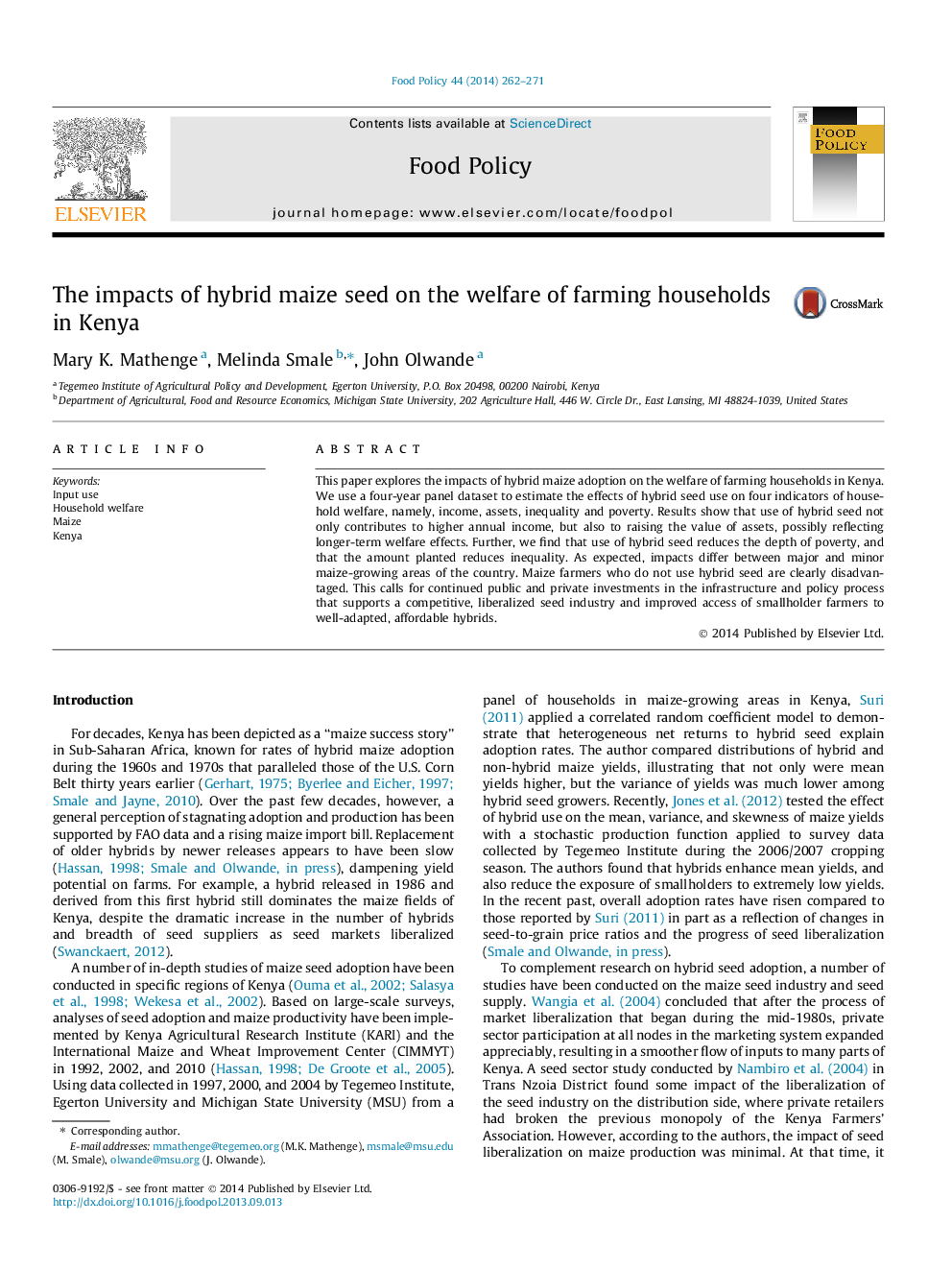| Article ID | Journal | Published Year | Pages | File Type |
|---|---|---|---|---|
| 5070575 | Food Policy | 2014 | 10 Pages |
Abstract
This paper explores the impacts of hybrid maize adoption on the welfare of farming households in Kenya. We use a four-year panel dataset to estimate the effects of hybrid seed use on four indicators of household welfare, namely, income, assets, inequality and poverty. Results show that use of hybrid seed not only contributes to higher annual income, but also to raising the value of assets, possibly reflecting longer-term welfare effects. Further, we find that use of hybrid seed reduces the depth of poverty, and that the amount planted reduces inequality. As expected, impacts differ between major and minor maize-growing areas of the country. Maize farmers who do not use hybrid seed are clearly disadvantaged. This calls for continued public and private investments in the infrastructure and policy process that supports a competitive, liberalized seed industry and improved access of smallholder farmers to well-adapted, affordable hybrids.
Keywords
Related Topics
Life Sciences
Agricultural and Biological Sciences
Food Science
Authors
Mary K. Mathenge, Melinda Smale, John Olwande,
